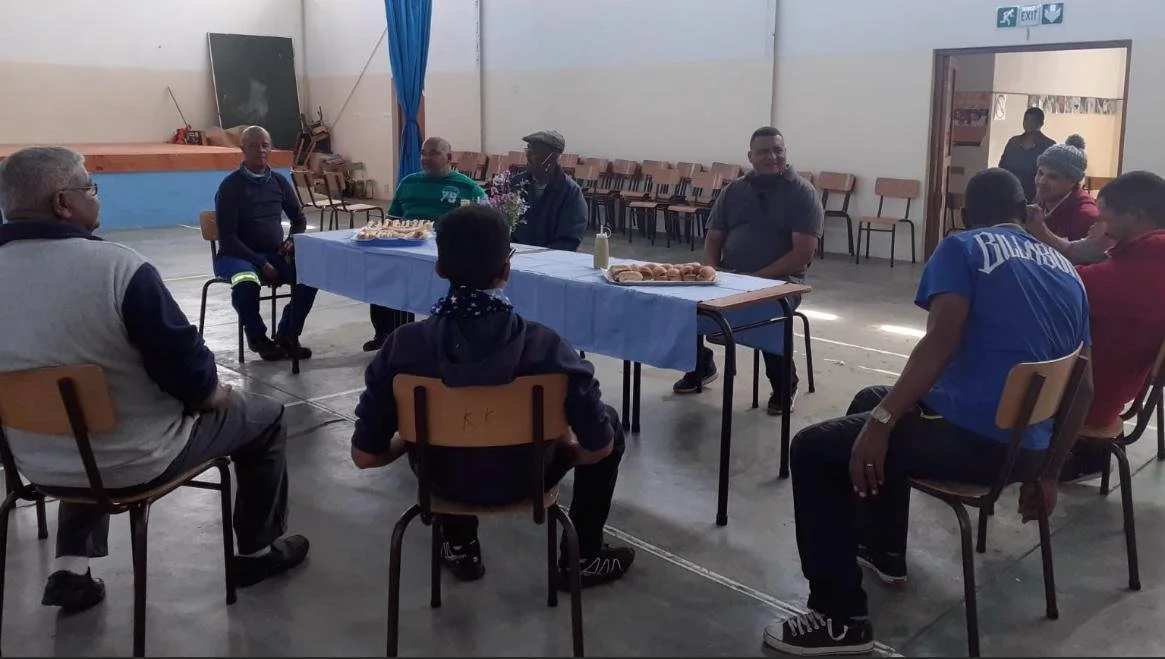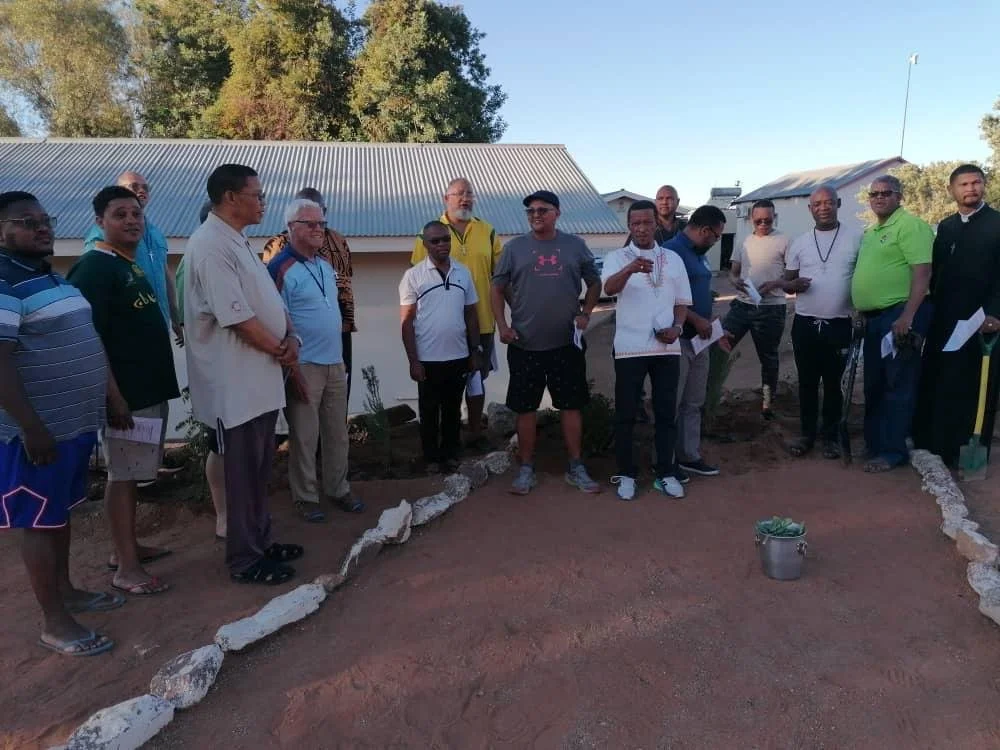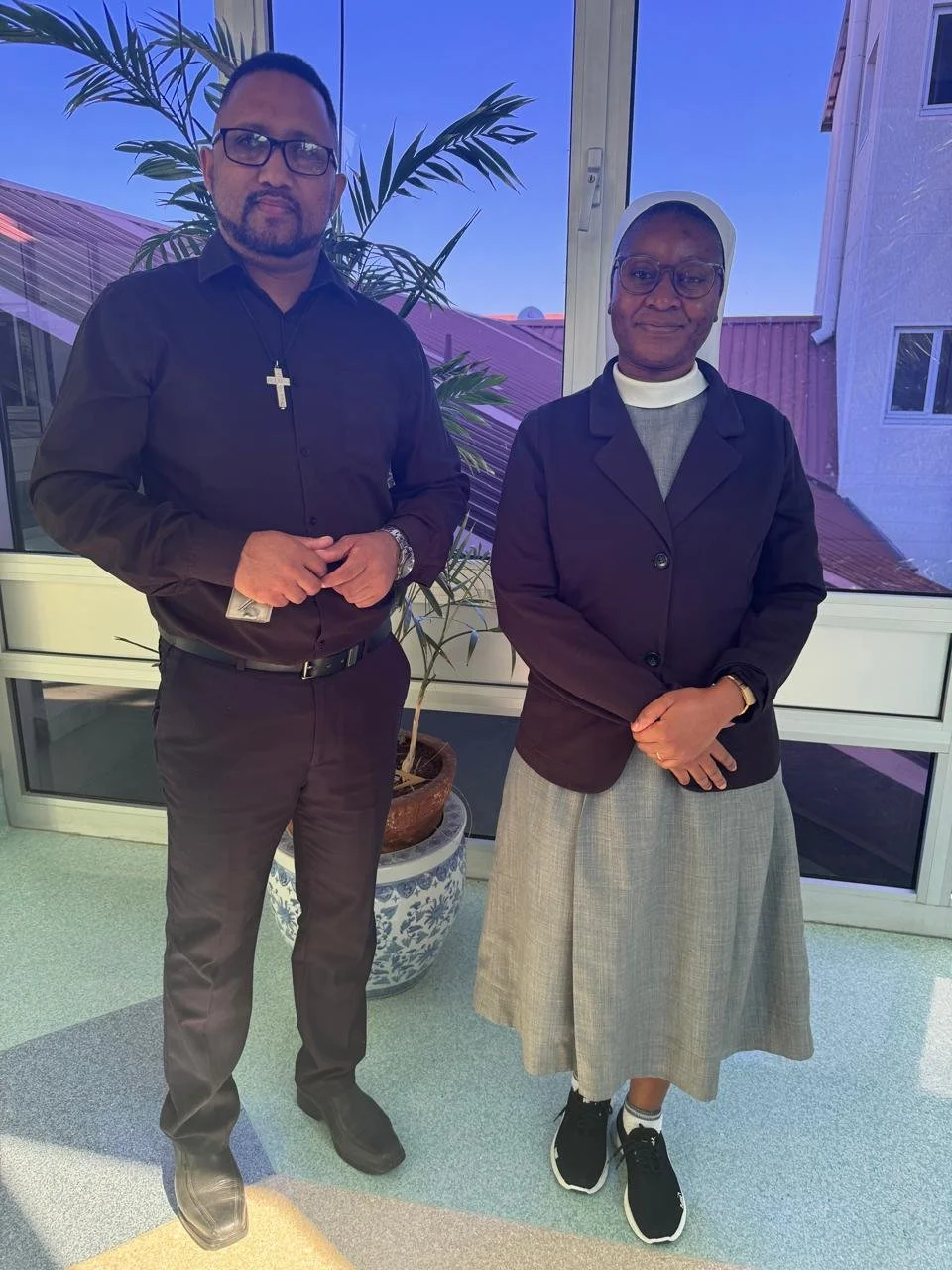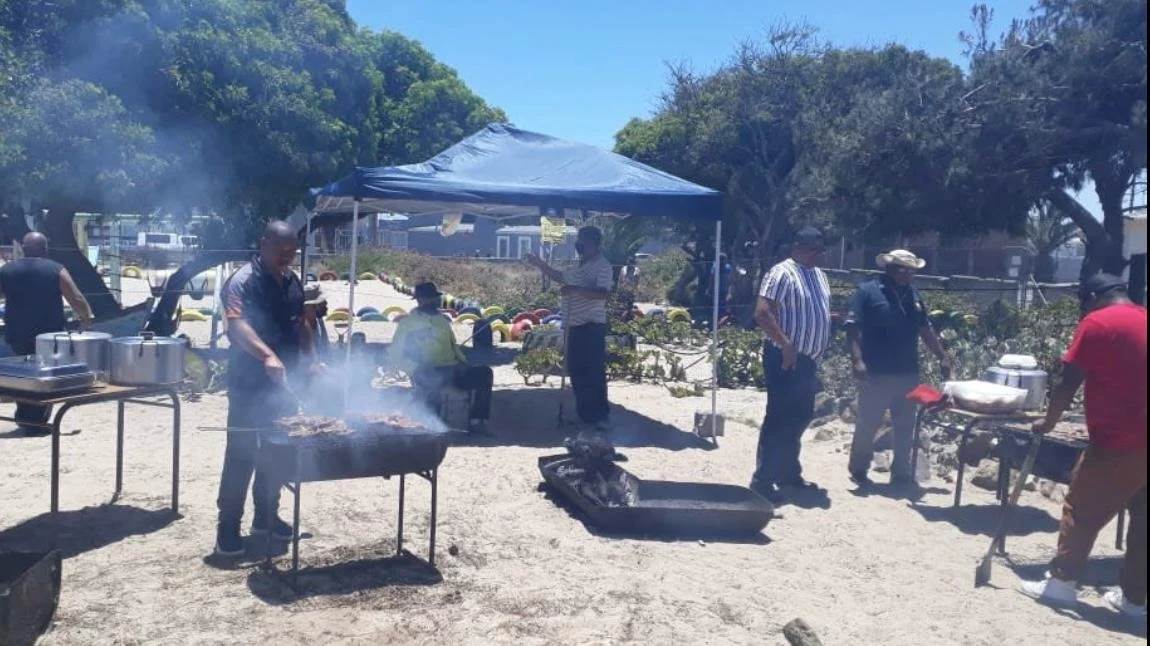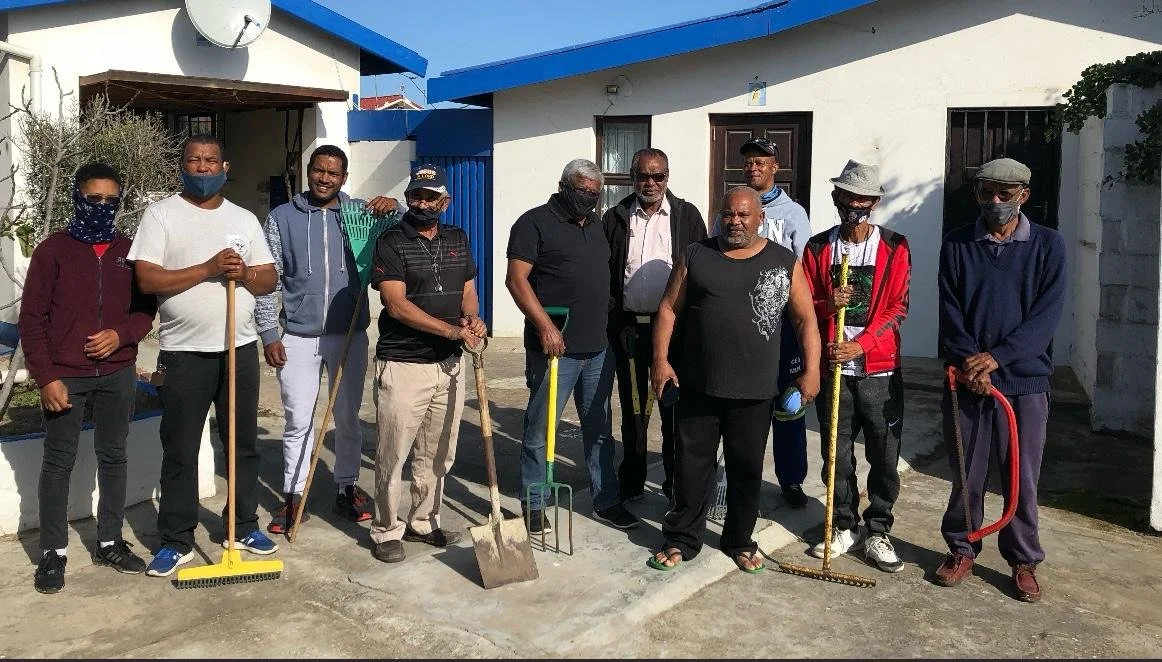Raising Leaders, Restoring Family
In the townships and rural villages of South Africa and Namibia, daily life often unfolds against a backdrop of unemployment, fractured families, and limited access to education. Young people grow up in communities where job prospects are scarce and role models can be hard to find. Men, in particular, face unique pressures: many struggle to support families in economies where stable work is elusive, while social expectations often leave them disconnected from the Church and unsure of their place in family life.
Men gather in the parish hall for conversations in the spirit.
The Oblates have been part of South African communities since 1882, when our founder, Bl. Louis Brisson, OSFS, sent five missionaries there. American Oblates are warmly welcomed, and in 1956, an American Oblate, Edward Francis Joseph Schlotterback, was appointed Bishop of Keetmanshoop, Namibia!
Today, we remain in this challenging region, encountering people through relationships, as St. Francis taught. Oblates there know the personal struggles of the people and respond with ministries to help Live Jesus and build practical life skills.
Men’s Retreat held for spiritual sharing.
Working with youth has become one of the Oblates’ most urgent priorities. Across the region, young people are raised in homes impacted by poverty, migration, or the lingering effects of apartheid-era inequality. Without guidance, young men in particular drift away from school or faith, searching for belonging in unhealthy places. Oblate priests and brothers create spaces where young people feel seen and valued. Through retreats, leadership workshops, and school programs, they help young men discover purpose and develop confidence. During these encounters, young people are reminded of Francis’ essential lesson - that holiness is found not in perfection, but in living your ordinary life in an extraordinary way.
As the Oblates serve youth, they also work to address a quiet crisis among men. High unemployment, substance abuse, and the erosion of traditional family structures have left many men uncertain of their role as fathers and community members. There has been a significant rise in domestic violence as times become more unstable. The same economic hardships that limit opportunities for young people also weigh heavily on their fathers, brothers, and uncles. In response, the Oblates gather men for open conversations about family, faith, and responsibility.
Fr. Huelerd Ramon, OSFS, Provincial of the Southern African Province, with a religious sister who works with Oblates at the Catholic hospital.
These meetings are not lectures but circles of trust where men can talk honestly about their struggles and hopes. By fostering dignity and accountability, the Oblates help men reconnect with their families and regain a sense of purpose. When men rediscover their inner strength and engage in healthy relationships, families stabilize, and communities begin to heal.
The Oblate presence extends to health care, schools, and parish life. Oblates serve as nurses, doctors, teachers, choir chaplains, and pastors, linking physical and spiritual well-being. Whether offering medical care, leading a song, or teaching a science lesson, they embody the Salesian holiness that is found in the ordinary.
The challenges are real and resources are limited, but the results of the Oblates' work in South Africa and Namibia are visible. Young leaders are emerging from youth programs. Students are graduating from high school. Men are returning to their families with renewed commitment. Parishes once on the edge of closure become vibrant centers of faith and service.
Salesian Spirituality is very much alive!
Teaching the Rosary with parish school children.
The men’s choir, Brotherhood of Men (BOM), in Namibia, at a fundraising event.
Men’s ministry gathering with barbeque and games.
Men’s ministry cleaning up the parish grounds.


